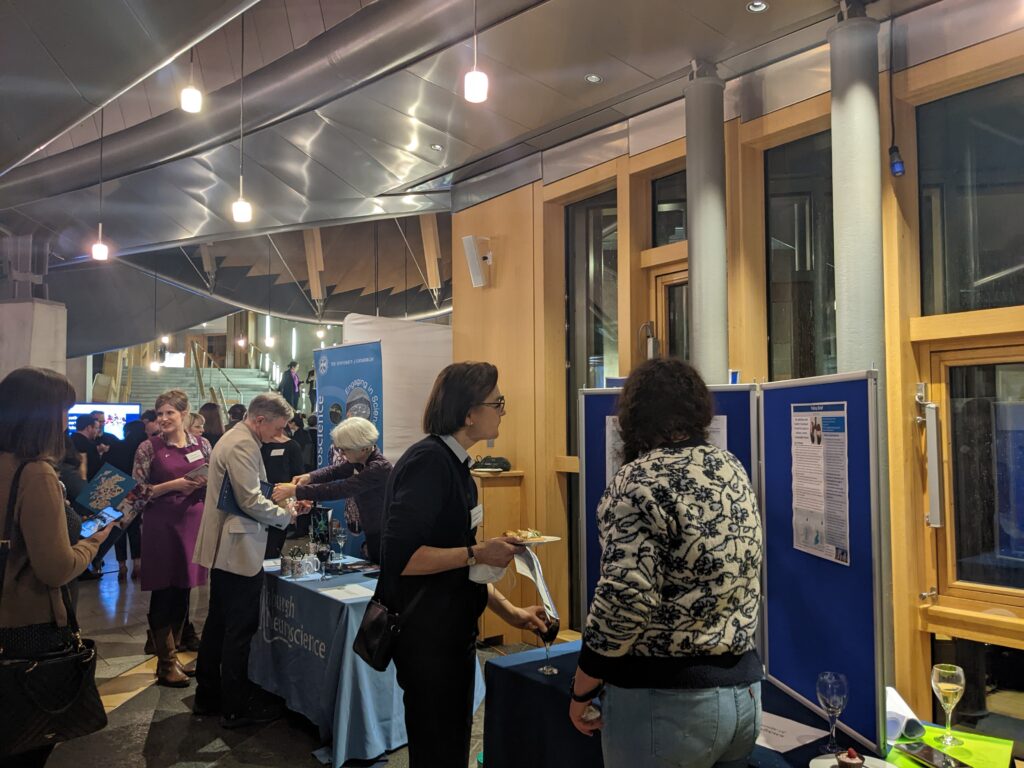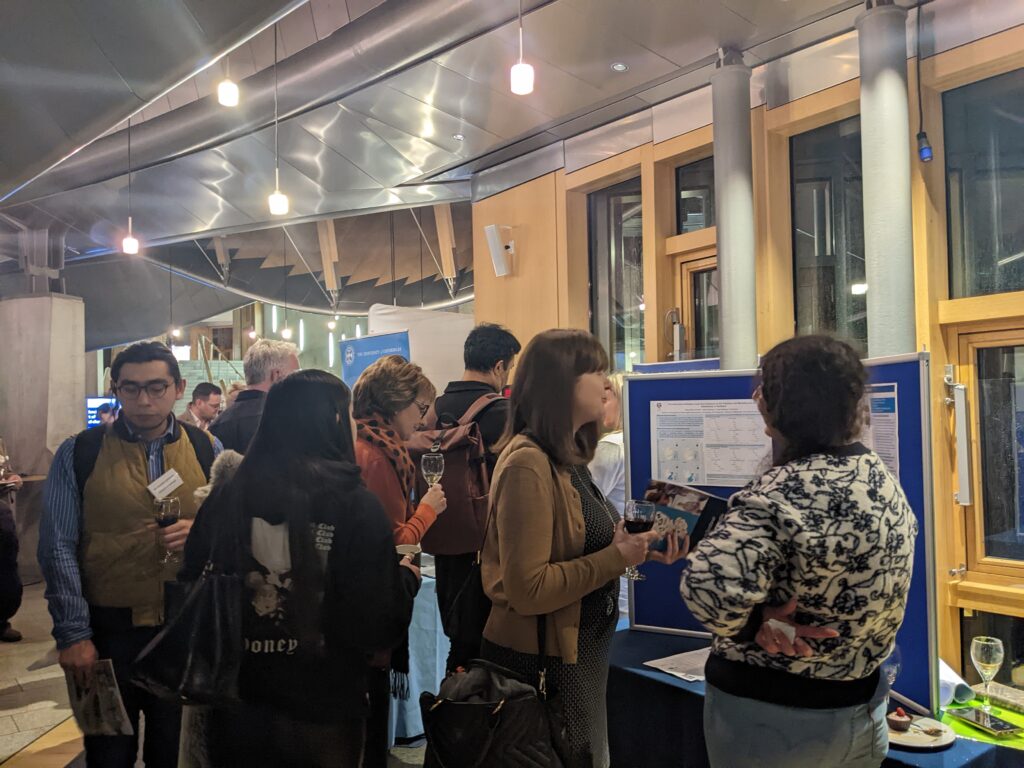Showing the Importance of Clean Air
Clean air is a vital contributing factor to a safe lifestyle. Even short-term exposure to air pollution can have negative impacts on wellbeing, while continuous exposure has been seen to damage every organ in the human body. The United Nation’s Sustainable Development Goals (SDGs), designed as a blueprint for a more sustainable future, recognise that 99% of the world’s urban population breathes polluted air, and place an improvement in air quality at the centre of SDG 11: Sustainable Cities and Communities.
On Wednesday 8th February 2023, the Scottish Parliament hosted Scotland at the Heart of Meeting Global Challenges, an event that celebrated the role of Scottish research in tackling the SDGs. This event was organised by the Physiological Society and the Royal Society of Edinburgh (RSE), two of the primary institutions engaging with scientific research in Scotland. In attendance was one of the School of Geography and Sustainable Development’s Early Career Researchers, Mary Abed Al Ahad, whose PhD focuses on the effect of air pollution on self-reported health, wellbeing, mortality, and hospital admissions by ethnicity in the UK. Mary was invited to showcase her research on the impact of air pollution on mortality and hospital admissions in Scotland to policymakers and other stakeholders, including Brand Scotland.

Mary has worked on an RSE Saltire Early career fellowship that formed the basis of her presentation at the Scottish Parliament and which, like her PhD, makes use of two large datasets: the Scottish Longitudinal Study (SLS) and the UK Household Longitudinal Study (UKHLS). The SLS brings together large-scale datasets from administrative and statistical bodies, covering factors such as migration, births, deaths, marriages, and education data to represent the broad demographic changes in Scotland over time. The UKHLS is a large longitudinal survey composed of 10 waves collecting data on main socio-demographic characteristics and lifestyle factors such as smoking on a sample of more than 40,000 households in the UK. By linking a sample of the SLS data to detailed data on air pollution using residential postcodes, Mary demonstrated an association between increased exposure to higher levels of air pollution and increased hospital admissions and mortality rates in Scotland. Similarly, Mary found an association between higher exposure to air pollution and higher rates of hospital admissions, GP visits, and poor self-reported general health in the UK by linking detailed air pollution data to the UKHLS data.
The greatest impact on respiratory, infectious, cardiovascular, and cancer diseases was shown for pollution comprised of relatively small particles, with diameters of less than 2.5 μm. These fine particles derive from many sources, including car exhaust emissions, and certain types of industries such as mining and construction. For every 1 μg/m3 increase in cumulative exposure to these particles, respiratory hospital admissions increased by 12% and the mortality hazard increased by 11%. Mary showed that the effects of air pollution go beyond physical wellbeing, with significant demonstrable effects to mental and behavioural health. She also demonstrated the importance of her work to Scottish public health policy, using a map of Scotland to show that nitrogen dioxide emissions in 2017 exceeded the 2021 WHO recommended maximums in some areas of the central belt.
These findings make a compelling argument for the introduction of measures to lower air pollution levels, which would lead to a more sustainable future and improved public health. Mary suggests that introducing stricter measures on industries, and encouraging the usage of renewable energy in transportation and energy production, would make huge strides towards a safer environment in which to raise future generations.
Mary’s research was received with much interest and curiosity from other attendees, including both fellow researchers and public officials. This led to several fruitful discussions with stakeholders, including North East Fife MSP, Willie Rennie, resulting in a greater general awareness of which areas are more polluted and what health impacts the different pollutants have. Attendants were also interested in Mary’s various data sources and the links between them, and there was a suggestion that similar methods could be applied to study the impact of other types of pollution on health, such as water pollution.

The event was hosted by Clare Adamson MSP, who said that “It was wonderful to host some of brightest minds in the country in our national Parliament.” Remarking on the potential of the work shown, Ms Adamson said that “In the UN’s Sustainable Development Goals, the key word is sustainable. We can use emerging technologies for the betterment of people and planet, but it requires a considered and consensual approach and buy-in from the international community.”
Professor Charles Withers FBA, FRSE, Chair of the Royal Society of Edinburgh’s Research Committee, commented: “We are very fortunate in Scotland to have many world-leading researchers and institutions that already contribute significantly to the country’s international research reputation and who work tirelessly to seek solutions to the global challenges we face. This successful event not only showcased Scotland’s role in tackling critical global challenges and in meeting sustainable development goals, but also illustrated the importance of collaboration and partnership in undertaking world-leading research and in promoting research excellence.”
Mary Abed Al Ahad is also a Research Fellow at MigrantLife, a project at St Andrews that investigates the various way in which employment, housing and family trajectories evolve and interact in the lives of immigrants and their descendants in the UK, France, Germany and Sweden; and how factors related to a societal context, an early life context and critical transitions shape their life histories. Read more about MigrantLife here.